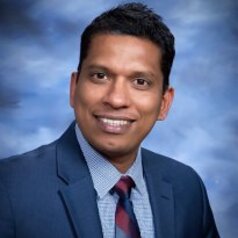
Balakumar Balasingam
Associate Professor, Electrical and Computer Engineering, University of Windsor
I am an Associate Professor in the Department of Electrical and Computer Engineering at the University of Windsor. From 2012 to 2017, I was an Assistant Research Professor in the Department of Electrical and Computer Engineering at the University of Connecticut. I received my Ph.D. in Electrical Engineering from McMaster University, Canada in 2008. After my PhD, I held a postdoctoral position at the University of Ottawa from 2008 to 2010, and then a University Postdoctoral position at the University of Connecticut from 2010 to 2012. My research interests are in signal processing, machine learning, and distributed information fusion and their applications in autonomous systems; particularly, his close interests are in battery management systems. I founded the battery management systems lab (BMSLab, www.bmslab.org) at the University of Windsor in 2017. The BMSLab has several ongoing funded projects in collaboration with government and industry partners. My Book titled "Robust Battery Management Systems with Matlab" is in press and will be published by Artech House, Norwood, MA, in fall 2023.
Less ![]()

Baljit Nagra
Associate Professor, Criminology, L’Université d’Ottawa/University of Ottawa
Dr. Baljit Nagra is a tenured Associate Professor in the Criminology Department at the University of Ottawa. She has previously held postdoctoral research fellowships at the University of Ottawa and at York University after receiving her doctoral degree from the University of Toronto. Her research aims to understand how racial discourses are rearticulated in the ‘War on Terror’. Her intellectual interest is in learning how racial boundaries are transformed through a language of gender, religion and security, creating ‘legitimate/desirable’ and ‘illegitimate/undesirable’ members of westerns nations, and reproducing past racialized nation state projects. Both her research and teaching are geared towards racial justice. Her research has been published in highly ranked refereed journals such as the Sociology of Race and Ethnicity, British Journal of Criminology, Canadian Journal of Sociology and the Journal of Ethnic and Migration Studies. She is also the author of a book titled Securitized Citizens: Canadian Muslims Experiences of Race Relations and Identity Formation Post 9/11 that was published by the University of Toronto Press. Her main areas of interest are in Race Relations, National Security and Surveillance, and Qualitative Research.
Less ![]()
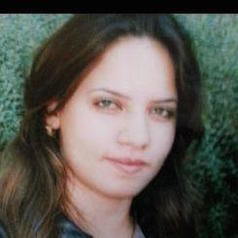
Balsam Mustafa
PhD Candidate in Modern Languages & Politics, University of Birmingham
I started my PhD at Birmingham university in 2013. My focus is on translation, media, and politics, particularly with regards to Islamic State in Iraq. I completed my BA and MA in translation and interpreting studies in Al-Mustansirriya university, Baghdad, Iraq.
I also worked as a lecturer in the Translation department , Faculty of Arts, Al-Mustansirriya University, from 2006 to 2013 when I was awarded a scholarship to pursue my PhD study at Birmingham University.
Less ![]()

Bamidele Olajide
Lecturer, University of Lagos
My areas of research interest include environmental and energy politics, aspects of the environment as political theory, international relations and African studies (films and politics).
Less ![]()
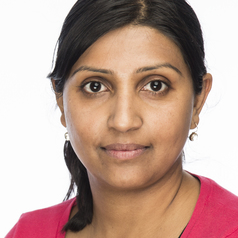
Bamini Gopinath
Principal Research Fellow, Sensory Loss Epidemiology, Westmead Institute, University of Sydney
Associate Professor Bamini Gopinath is an epidemiologist who has been actively involved in developing and conducting numerous population health studies. To date she has co-authored over 150 peer-reviewed papers, several of which have been in high-ranking medical and health journals (with over 1600 citations to her name). Her publications have attracted >400 media stories with an estimated audience of 210 million people worldwide. Using large population datasets Bamini has provided novel community-based evidence on the health determinants and health outcomes associated with a range of chronic diseases and disability. Her research work is primarily focused on sensory loss epidemiology, which aims to assess the modifiable lifestyle determinants and impacts of age-related sensory impairments. Her ongoing research in the public health field aims to translate key study findings into health policy and practice, with the intention of targeting current gaps that exist in Australian healthcare.
Less ![]()
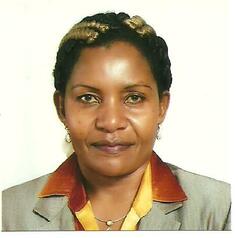
Bancy M. Mati
Professor of Agricultural Engineering, Jomo Kenyatta University of Agriculture and Technology
Eng. Bancy Mati is the founder Chairperson of the Association of Irrigation Acceleration Platform (AIAP). A Professor at Jomo Kenyatta University of Agriculture and Technology (JKUAT), she is an expert on land and water management with particular interest in irrigation, water harvesting, and the technologies, approaches and policy support that enhance upscaling and expanding irrigated agriculture in Kenya and in Africa.
She holds a PhD degree on Agricultural Engineering, Food Production and Rural Land Use from Cranfield University of United Kingdom; MSc degree in Land and Water Management and BSc degree in Agricultural Engineering, the latter from University of Nairobi. She is a registered Consulting Engineer, a Fellow of the Institution of Engineers of Kenya (FIEK) and Lead Expert in Environmental Impact Assessment (EIA).
Prof. Mati is member of the UN Steering Committee of the High Level Panel of Experts on Food Security and Nutrition (HLPE). She is in the Board of Management of the Upper Tana Nairobi Water Fund (UTNWF), and in the Steering Committee 2 of the Kenya Water for Industry Association (KWIA). She is on the Advisory Board of the FogNet Alliance. Previously, Prof. Mati served in the Advisory Committee of the United Nations University Institute for Integrated Management of Material Fluxes and of Resources (UNUFLORES)
Less ![]()
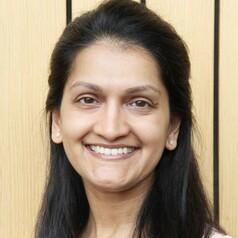
Banita Lal
Associate Professor in the School of Management, University of Bradford
Dr. Banita Lal is an Associate Professor in Responsible Management, Director of the Masters in Management Portfolio and Programme Leader for the MSc Management programme. She gained her PhD from the Department of Information Systems, Computing and Mathematics at Brunel University, UK before moving on to work at Nottingham Trent University and the University of Bedfordshire. At the latter, Banita was Course Coordinator for the BSc (Hons) Business Studies and six pathway programmes and had overall responsibility for over five hundred students in the UK and Vietnam. She has been instrumental in new course development with a strong emphasis on employability and a practice-based approach to teaching and learning.
Banita's research interests are in the area of adoption and diffusion of technology and include: social media technology, ICT for Development and ICT-enabled flexible working arrangements. She has published in conferences and journals in the field of Information Systems which include: Information Systems Frontiers, Government Information Quarterly, Information Technology and People, the Americas Conference on Information Systems (AMCIS), European Conference on Information Systems (ECIS) and the Annual International Conference on Digital Government Research. Banita currently serves as a programme committee member for IFIP (International Federation for Information Processing) 8.6 Group - an international group concerned with the diffusion, adoption and implementation of information (and communication) technologies.
Less ![]()
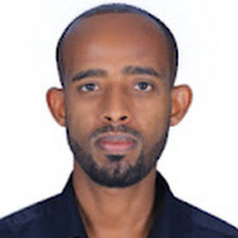
Bantayehu Shiferaw Chanie
Visiting Researcher, Public and International Affairs, L’Université d’Ottawa/University of Ottawa
I am currently a Visiting Researcher at the Graduate School of Public and International Affairs at the University of Ottawa. Prior to this role, I served as an Assistant Professor and PhD Program Coordinator at the Department of Political Science and International Studies at Bahir Dar University in Ethiopia. Additionally, I held the position of the 2021/2022 African Presidential Scholar at the University of Michigan in the US.
My academic background includes a PhD in Political Science and International Studies, which I obtained from Bahir Dar University in December 2021. Prior to that, I completed my master’s and undergraduate studies in political science and international relations at Addis Ababa University in Ethiopia.
Less ![]()
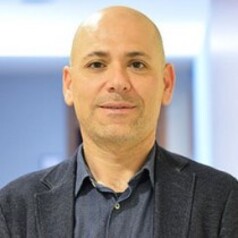
Barah Mikaïl
Associate professor, IE University
Barah Mikaïl is an Associate Professor of International Security at Saint Louis University Madrid Campus and at IE University and director of the Observatory on Contemporary Crises. He is also the founder of Stractegia, a Madrid-based consulting company that provides advice on the Geopolitics of the MENA region and on Spanish politics.
He was senior researcher on Middle East and North Africa and on Water Issues at the Institut de Relations Internationales et Stratégiques (IRIS) in Paris (2002-2011) and senior researcher on MENA issues at FRIDE (2011-2015) in Madrid. Barah has been Professor at the Collège Interarmées de Défense at the French Ministry of Defence (2005-2007); at the Université Paris-8 Saint-Denis (since 2005); and at Sciences-Po Lille (2004-2005). In 2003, he also worked as an analyst on Middle East issues at the French Ministry of Defence. He holds a PhD in Political Science from the Université Paris 8 Saint-Denis; an MA in Political Science from the Université Paris Dauphine; and an MA in International Relations and an MA in Arab and Islamic Civilisations from the Université Marc Bloch.
He specialises in the Middle East and North Africa region, covering topics such as EU and US policies, and security, political and economic issues. Other areas of expertise include ethnicity, tribalism and Islam in the Arab world, and water political issues and stakes.
Barah Mikail has written extensively on the Middle East and North Africa. He has also authored four books :
- "La politique américaine au Moyen-Orient" (American Policy in the Middle East), Dalloz, 2006;
- "L’eau, source de menaces ?" (Water as a source of threat?), Dalloz, 2008;
- "La Syrie en cinquante mots-clés" (Syria in 50 Key Words), L’Harmattan/Comprendre le Moyen-Orient, 2009;
- "Une nécessaire relecture du "Printemps arabe"" (A Necessary Rereading of the "Arab Spring"", Editions du Cygne, 2012.
Less ![]()

Barath Raghavan
Associate Professor of Computer Science and Electrical and Computer Engineering, University of Southern California
Barath Raghavan received his PhD in Computer Science from UC San Diego in 2009 and his BS in Electrical Engineering and Computer Science from UC Berkeley in 2002. Before joining USC in 2018, he split his time between industry and academia working on a wide range of projects in core Computer Science areas such as computer networking, security, and distributed systems and on socially-focused topics such as rural Internet access and sustainable agriculture.
Dr. Raghavan's research has focused on a wide range of topics in systems and networking, including network protocol design, congestion control, network security, datacenter networking, high-performance networking, wide-area networking, wireless networking. In addition, he has pursued research on a number of socially-focused topics such as rural Internet access, energy efficiency, and computing for sustainable agriculture.
Less ![]()
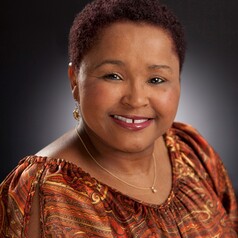
Barb Hamilton-Hinch
Associate Professor, School of Health and Human Performance, and Assistant Vice Provost of Equity and Inclusion, Dalhousie University
Dr. Barb Hamilton-Hinch is from the historical African Nova Scotian communities of Beechville and Cherry Brook. Barb is currently employed at Dalhousie University as the Assistant Vice Provost of Equity and Inclusion and an Associate Professor in the in the School of Health and Human Performance at Dalhousie University. Her work examines the impact of structural, systemic and institutional racism on diverse populations, particularly people of African descent.
She holds a Bachelor of Science in Recreation Management, Masters of Arts, (from Dalhousie University) a Bachelor of Education (secondary) from Mount St. Vincent University and a PhD from Dalhousie University. She is said to be the first African Nova Scotian to graduate with a PhD from Dalhousie University.
Barb’s current research projects include: Closing the Opportunity Gap for African Nova Scotian Learners, Optimizing Services for Families Living in Communities that have been Marginalized, Examining the Impact of Racism on the Health and Wellbeing of People of African Descent, The benefits and challenges of Culturally Relevant Programs for Post-Secondary Students, Racialized Bodies and Elite Sports, and Mobilizing Supports and Programs for Incarcerated Individuals Integrating Back in to the Community and Exploring support for Care Givers of individuals with dementia
At Dalhousie University Dr. Hamilton-Hinch holds a number of positions she is the co team lead for the Improving the Health of People of African Descent Research Cluster with Healthy Populations Institute, she is one of the founders of Imhotep Legacy Academy (ILA-a program that is developed to increase the number of students of African descent in Science, Technology, Engineering and Math), co-chair of Promoting Leadership in Health for African Nova Scotians (PLANS a program to increase the number of students of African descent in Health).
Less ![]()
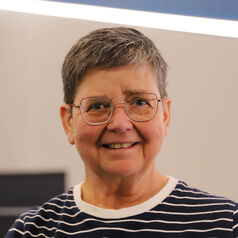
Barbara Bok
Adjunct Senior Research Fellow, Centre for Healthy and Sustainable Development, Torrens University Australia
As an Adjunct Senior Research Fellow, Dr Bok undertakes research in the interests of using futures research in creative and generative ways to achieve transformational impact in the contexts of complex problem situations.
Less ![]()
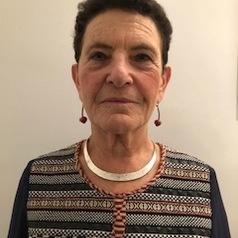
Barbara Caine
Professor of History, University of Sydney
I am a historian interested in histories of feminism and in questions about history and the individual life. My publications include: Biography and History, Forthcoming April 2010, Palgrave Macmillan (History and Theory series)
"Destined to be Wives: The Sisters of Beatrice Webb", Oxford University Press, 1986, "Victorian Feminists", Oxford University Press, 1992," English Feminism, c1780-1970, Oxford University Press", 1997, Bombay to Bloomsbury: the Stracheys, c 1850-1950, Oxford University Press, 2005, Biography and History, Bloomsbury 2012, Women and the Autobiographical Impulse, Bloomsbury 2023. I was one of the editors of the Companion to Australian Feminism, Oxford 1998.
Less ![]()

Barbara Catinella
Professor and Senior Principal Research Fellow, International Centre for Radio Astronomy Research (ICRAR), The University of Western Australia
Less ![]()
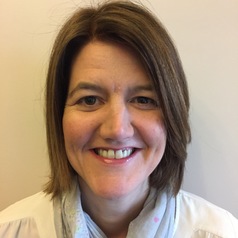
Barbara Farquharson
Barbara is a Lecturer in the School of Health Sciences at the University of Stirling. Her research interests relate to the psychological aspects of health. She worked for 15 years as a Registered Nurse, including as a British Heart Foundation specialist cardiac nurse.
Less ![]()

Barbara Franchi
Teaching Fellow in Postcolonial and World Literature, Durham University
I work on contemporary fiction, with a special focus on cultural memory, material feminism, postcolonial historical fictions, and their intersections with the current ecological crisis. I have published articles and book chapters on A. S. Byatt, David Mitchell, Eleanor Catton, Rose Tremain, and Isabel Allende, and co-edited a collection of essays on imperialism in Victorian travel culture. I obtained my PhD in English from the University of Kent in 2017, where I wrote a thesis on A. S. Byatt and intertextuality. I hold an MA in English and Postcolonial Studies, and a BA in English and French, both from Ca' Foscari University Venice (Italy). I am Teaching Fellow at Durham University since 2021.
Less ![]()
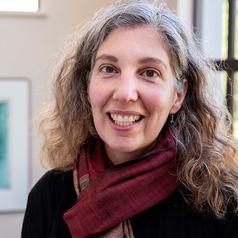
Barbara Haya
Senior Fellow at the Center for Environmental Public Policy, University of California, Berkeley
Barbara Haya is a Senior Fellow at the Center for Environmental Public Policy (CEPP) where she directs the Berkeley Carbon Trading Project. She takes an interdisciplinary approach to examining the outcomes and design of carbon trading and offsetting programs, and the limits to the effectiveness of carbon trading alone. The Project coordinates research and outreach to ensure its research results inform policy and program design.
Barbara holds a PhD from UC Berkeley’s Energy and Resources Group. Her work has been featured in the Financial Times, Bloomberg News, the Guardian, and MIT Technology Review.
Less ![]()
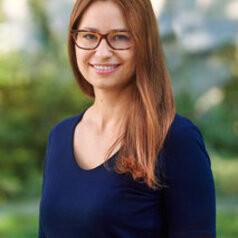
Barbara Huber
Doctoral Researcher, Department of Archaeology, Max Planck Institute of Geoanthropology
Barbara’s doctoral research at the Max Planck Institute and the University of Tübingen investigates the global dimensions of the dispersal of ancient aromatics and spices throughout Asia and East Africa using biochemical and biomolecular analyses to characterize organic remains. Her current projects aim at reconstructing the use of smells and scented plants in the past using biomolecular profiling of plant secondary metabolites, lipids and proteins. In 2020, Barbara was awarded an Add-on Fellowship for Interdisciplinary Life Science from the Joachim Herz Foundation for her PhD research. She also won a 2022 AEA Small Research Grant awarded by the Association for Environmental Archaeology to fund her project titled “Reconstructing olfactory landscapes of ancient Arabia using biomolecular approaches”.
Less ![]()
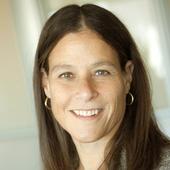
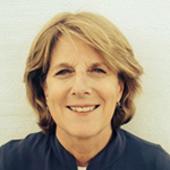
Barbara Kates-Garnick
Professor of Practice in Energy Policy, The Fletcher School, Tufts University
Less ![]()
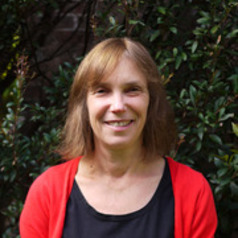
Barbara Mintzes
Dr Barbara Mintzes is a research scientist specialising in the study of pharmaceutical policy. Her research focuses on the effects of direct-to-consumer advertising of prescription drugs and other forms of pharmaceutical promotion on the prescribing and use of medicines. She also performs systematic reviews of clinical trial evidence regarding the health effects of medicines, including both benefit and harm, in terms of outcomes of importance to patients’ health. Dr Mintzes has has a doctorate in Health Care and Epidemiology and was Associate Professor at the School of Population and Public Health at the University of British Columbia (UBC), Canada prior to joining the University of Sydney in April 2015. At UBC, she worked with the Therapeutics Initiative, a research group that evaluates new drugs as a background to provincial reimbursement decisions and produces an educational bulletin on drug treatments. Currently, she is the lead investigator on an international comparative study examining the influence of national regulations on the amount of safety information that pharmaceutical sales representatives provide to primary care physicians. Dr Mintzes was a lead member of an international WHO and Health Action International (HAI) project that involved developing an educational manual on drug promotion, for pharmacy and medical students. This manual has been translated into Spanish, Russian and French, and incorporated into education curricula in a range of settings. Dr Mintzes maintains strong community engagement, having worked for many years with women’s health and consumer groups, including DES (diethylstilbestrol) Action Canada, and Women and Health Protection (a Canadian non-profit organization). She co-authored the book “Sex, Lies and Pharmaceuticals” with Ray Moynihan, published in 2010.
Less ![]()
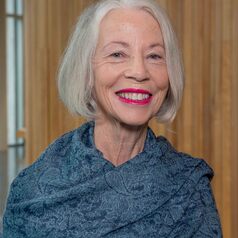
Barbara Myers
Associate Professor, Auckland University of Technology
Dr Barbara Myers is an Associate Professor and teaches undergraduate and postgraduate courses in Management, HRM, Global Mobility and Careers for AUT’s Department of Management. Barbara has held a number of roles at the University including Associate Dean Academic, Head of Department and Senior Lecturer.
Barbara’s research is about work (paid and unpaid) and careers in different contexts (e.g. global mobility, self-initiated expatriation (SIE), organisations and universities) drawing on diverse lenses e.g. (gender, life-course) and predominantly qualitative methodologies and frameworks. An inter-disciplinary approach best informs the research she conducts around the nexus of work and life.
Barbara has published in a range of journals including the Journal of World Business, Journal of Global Mobility, Personnel Review, Gender, Work and Organization, International Perspectives on Equality and Diversity, Career Development International and Studies in Higher Education. Barbara also reviews for a wide range of respected journals and conferences at an international and national level.
Barbara has a special interest in narrative methodologies not just as a researcher but also as a teacher in a range of courses and programmes that she teaches and supervises on at undergraduate and postgraduate level. There she also draws on personal and organisational story telling to support wider business and commercial strategy, incorporating history and change into the way we look at a changing world of work and how we reflect on and consider career possibilities and change.
Less ![]()
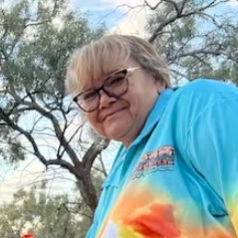
Barbara Quayle
Vice-president of the Menindee Aboriginal Elders Council, Indigenous Knowledge
Barbara Quayle is a Barkindji Elder from Menindee, New South Wales.
Less ![]()
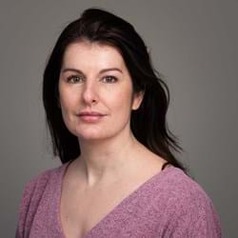
Barbara Rossi
Associate Professor and Tutorial Fellow in Engineering Science (Structures & Mechanics), University of Oxford
Barbara Rossi joined the University of Oxford in March 2019 as Associate Professor and Tutorial Fellow in Engineering Science (Structures & Mechanics). Prior to this, she was an associate professor in Engineering Technology at KU Leuven in Belgium, where she led a research group exploring the structural behaviour of metallic structures, with a special interest in stainless steel and harsh environments, where corrosion plays an important role. Over the last ten years she also branched into the research area of life-cycle analysis and sustainability appraisal of (metal) structures.
Today, Barbara leads the Sustainable Metal Structures Research Group at the University of Oxford. Her research focuses on the role of metals in structures to improve the construction sector sustainability and resilience. Her team studies materials such as ultra-high strength steel, stainless steel, aluminium, or a combination of these, used in structures such as bridges, windmills, radioactive waste disposal facility, and wastewater treatment plants. Advanced analytical and computational analysis are combined with experimental methods to perform both fundamental and applied research. Full-scale experiments are conducted on structures or part thereof in her former laboratory at KU Leuven and in the new Sustainable Metal Structures Laboratory, at Begbroke Science Park.
Less ![]()

Barbara Sahakian
Professor of Clinical Neuropsychology, University of Cambridge
Barbara Sahakian's research is aimed at understanding the neural basis of cognitive, emotional and behavioural dysfunction in order to develop more effective pharmacological and psychological treatments. The focus of my lab is on early detection, differential diagnosis and proof of concept studies using cognitive enhancing drugs. She is President of the International Neuroethics Society.
Less ![]()
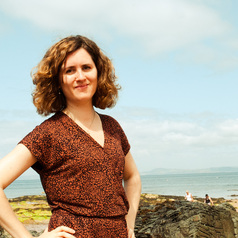
Barbara Tesio-Ryan
Information Services Supervisor, The University of Edinburgh
Dr Barbara Tesio-Ryan currently works as Information Services Supervisor for the libraries of the University of Edinburgh, where she previously held a post as Teaching Fellow in Comparative Literature and as a Danish Literature tutor. She holds a PhD in Scandinavian Studies, an MSc in Comparative and General Literature from the University of Edinburgh, and a BA in Literature and Performing Arts from the Sapienza University of Rome.
Barbara’s PhD thesis ‘Reassessing Karen Blixen’s Gengældelsens Veje/The Angelic Avengers: a Novel Challenging Gender, Totalitarianism and Colonial Practices’ offers a multidimensional and comprehensive reassessment of the Danish author Karen Blixen’s less known works. Blixen’s novel Gengældelsens Veje/The Angelic Avengers is used as a starting point to explore the historical context of publication of the text (Denmark under Nazi occupation), its transmission and reception into the cultural context of post-war United Kingdom and United States, as well as Blixen’s use of gothic genre as a way to subvert the concept of gender, totalitarianism and colonial practices.
Barbara’s current research interests include Scandinavian Studies, Comparative Literature, Postcolonial studies, Storytelling, Gothic Studies, Library and Information Science.
Less ![]()
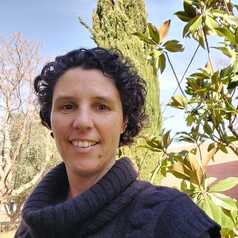
Bàrbara Baraibar Padró
Investigadora posdoctoral Beatriu de Pinos en Malherbologia, Universitat de Lleida
Bàrbara Baraibar (PhD). ORCID ID: https://orcid.org/0000-0003-1601-7731, Researcher ID: U-3119-2019, Scopus ID: 26040476600. Ingeniera agrónoma por la Universidad de Lleida (2005). Mi carrera investigadora se ha centrado en dos temas fundamentales: la depredación de semillas de arvenses y el uso de cultivos cubierta para el manejo de malezas y la provisión de otros servicios ecosistémicos. Este último aspecto lo he llevado a cabo mayoritariamente en sistemas de producción ecológica en Estados Unidos. Después de doctorarme (Universidad de Lleida, 2011, 5 artículos publicados) y una corta etapa post-doctoral en la Universidad de Lleida (2013-2014), trabajé como investigadora post-doctoral en Penn State University (EUA) durante casi 5 años (2014-2019) en los que fui co-IP de un proyecto financiado por el USDA, OREI (Organic Research and Extension Iniciative). En dichos años, diversifiqué mis líneas de trabajo para explorar la relación entre malas hierbas y nutrientes del suelo y puse las bases para posteriormente, a mi vuelta, conseguir un contrato como investigadora Beatriu de Pinós (BdP) este 2020. Como investigadora BdP (grupo de investigación reconocido de Malas Hierbas y Ecología Vegetal de la UdL) lidero un proyecto que explora el efecto del suelo, fertilización y microbioma en la relación cultivo – mala hierba. Además, también soy co-IP de un proyecto que explora innovaciones tecnológicas en la producción de soja ecológica para maximizar la producción y conseguir un buen manejo de las malas hierbas (2020-2021). Hasta la fecha, he publicado 21 artículos científicos, con un total de 470 citas (Scopus). Igualmente, soy co-autora de un capítulo de libro científico y numerosas publicaciones de transferencia. Soy editora de la revista Weed Research y revisora de diversas revistas (últimos 3 años en https://publons.com/researcher/1612806/barbara-baraibar/peer-review/). He tutorado varios trabajos finales de carrera y de master.
Less ![]()
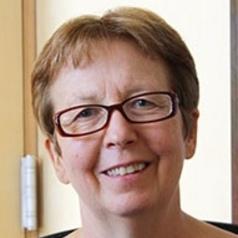
Barbara Clark Smith
Curator, Division of Political History, Smithsonian Institution
I am an internationally known scholar and public historian specializing in the field of early America. I earned my PhD at Yale, working on the American Revolution under the amazing Edmund S. Morgan. My publications include scholarly works, as The Freedoms We Lost, published by the New Press in 2011) and essays in journals such as the William and Mary Quarterly, the Journal of the Early Republic, and other venues. I have produced museum exhibitions at the National Museum of American History and elsewhere, ranging from everyday life "After The Revolution" (1985) through more recent exhibits of "American Democracy" (2017) and "Upending 1620," which treated the Wampanoag engagement with English newcomers called Pilgrims in that year (2020). I have presented the findings of scholarship to a public readership in museum catalogs, a handbook for the National Park Service's Freedom Trail, and various op-eds and occasional publications.
Less ![]()
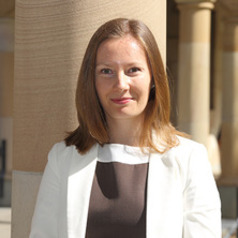
Barbora Jedlickova
Senior Lecturer, School of Law, The University of Queensland
Barbora Jedlickova joined the University of Queensland in 2011. She specialises in competition law and is interested in comparative competition law, competition-law theories and competition law in the digital economy. Her research has focused primarily on vertical restraints; bargaining power; and economic and jurisprudential theories and arguments in competition law. Her research also includes analysis of specific markets with distinctive issues such the grocery retail market, the pharmaceutical market and the telecommunications market. Her recent publications include a research monograph Resale Price Maintenance and Vertical Territorial Restrictions: Theory and Practice in EU Competition Law and US Antitrust Law published by Edward Elgar Publishing and a joint article on legal theories in anti-cartel law published in the Federal Law Review.
Dr Jedlickova’s engagement and research are both nationally and internationally orientated. She has visited several European and US institutions as a visiting scholar; including the University of Iowa, Boston University and the Court of Justice of the European Union. She is a member of a number of national and international associations. She is an active member of the International League of Competition Law (LIDC) and has been involved in three international LIDC projects. Dr Jedlickova is a Fellow of the Centre for Public, International and Comparative Law (CPILC) and a Fellow of the Australian Centre for Private Law at the TC Beirne School of Law. She manages one of the CPICL’s research programs and has severed as a General Editor of the LAWASIA Journal.
Dr Jedlickova holds degrees from the University of Glasgow in the UK (PhD in Law, 2012; and LL.M. with Commendation in International Competition Law and Policy, 2007) and from Masaryk University in the Czech Republic (2004). Prior to her academic career, she worked as a Lawyer in the Czech Republic and as a Contracts Officer/Assistant Contracts Manager at both the University of St Andrews and the University of Glasgow in the UK. In 2009, she was a trainee (a blue-book 'stagiaire') of DG Competition at the European Commission in Brussels.
Less ![]()
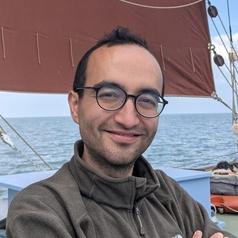
Baris Celik
Baris' research mainly surrounds global governance, security and defence cooperation in Europe, and international environmental politics. His research on these topics is published in outlets including the Journal of European Integration, European Security and Global Affairs. His teaching areas include international security and defence, international climate politics, European Union and Middle East politics, international relations theories, research methods in political science, and diplomacy.
Research interests include:
Global governance
International security and defence policies
International organisations
Climate change
Organisational theory
Less ![]()

Baris Cayli Messina
Associate Professor, Criminology, University of Lincoln
Dr Baris Cayli Messina is a social and cultural critic. He is Associate Professor of Criminology at the University of Lincoln. He is Editor-in-Chief of International Social Science Journal (Wiley) and Editor the book series, Temple Studies in Criminalization, History, and Society (Temple University Press).
Less ![]()
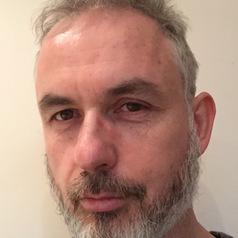
Barnaby Haran
Senior Lecturer in American Studies, University of Hull
Dr Barnaby Haran teaches and researches American art and visual culture, with an emphasis on photography and radical cultural practices. He is interested in transnational cultural relations, especially the American and Soviet interchanges of the interwar years, which is the subject of his monograph 'Watching the Red Dawn: the American Avant-Garde and the Soviet Union (Manchester University Press, 2016). He has written and delivered papers on the photographer Margaret Bourke-White, the painter Alice Neel, and the curator Jane Heap in relation to politics, work, and gender. His current research concerns radical photography and racial injustice.
Less ![]()


Barret Kurylyk
Associate Professor and Canada Research Chair in Coastal Water Resources, Dalhousie University
Dr. Kurylyk's areas of research include physical hydrology and hydrogeology. In particular, his research program investigates how hydrologic systems respond to environmental change and the interactions between aquifers and surface water bodies. Due to the transdisciplinary nature of this work, his research often interfaces with many other disciplines including geology, biology, oceanography, climatology, and mathematics.
Less ![]()
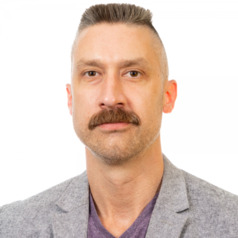
Barret Michalec
Research Associate Professor of Nursing and Health Innovation, Arizona State University
Barret Michalec, PhD, is the Director of ASU’s Center for Advancing Interprofessional Practice, Education and Research and Associate Professor at the Edson College of Nursing and Health Innovation.
As Director, he promotes and enhances ongoing CAIPER initiatives and programs, cultivates productive collaborative partnerships, as well as identifies and expands interprofessional learning and practice opportunities for students, faculty, and community members.
As a sociologist, Barret brings unique and novel perspectives on various aspects of IPE/IPCP, with a keen eye on evaluation and assessment. His research focuses on socialization and professionalization processes and mechanisms within health professions education, disparities in health and health professions, intergroup and interpersonal processes, as well as empathy, emotional contagion, and humility.
Less ![]()
- Market Data




















